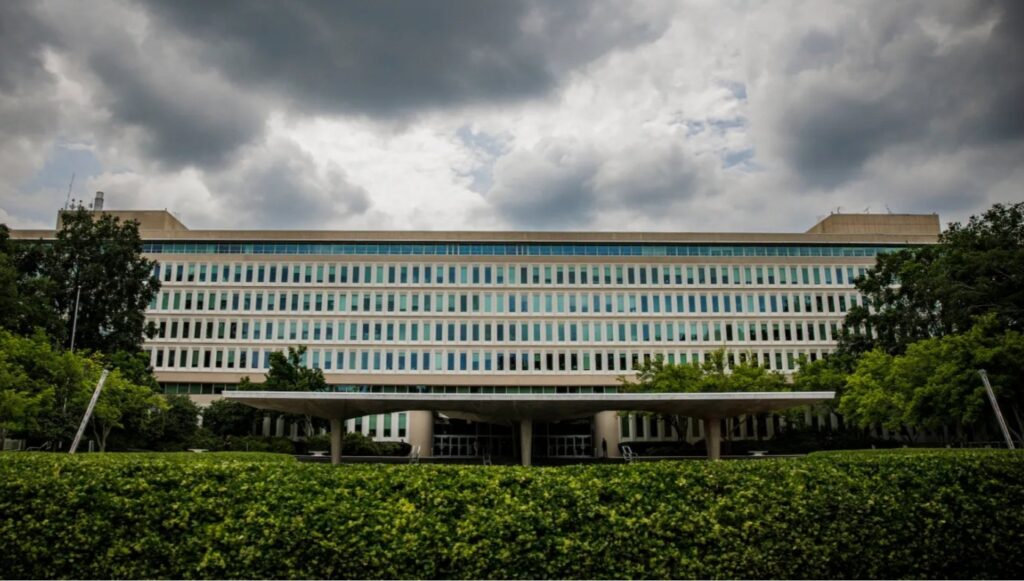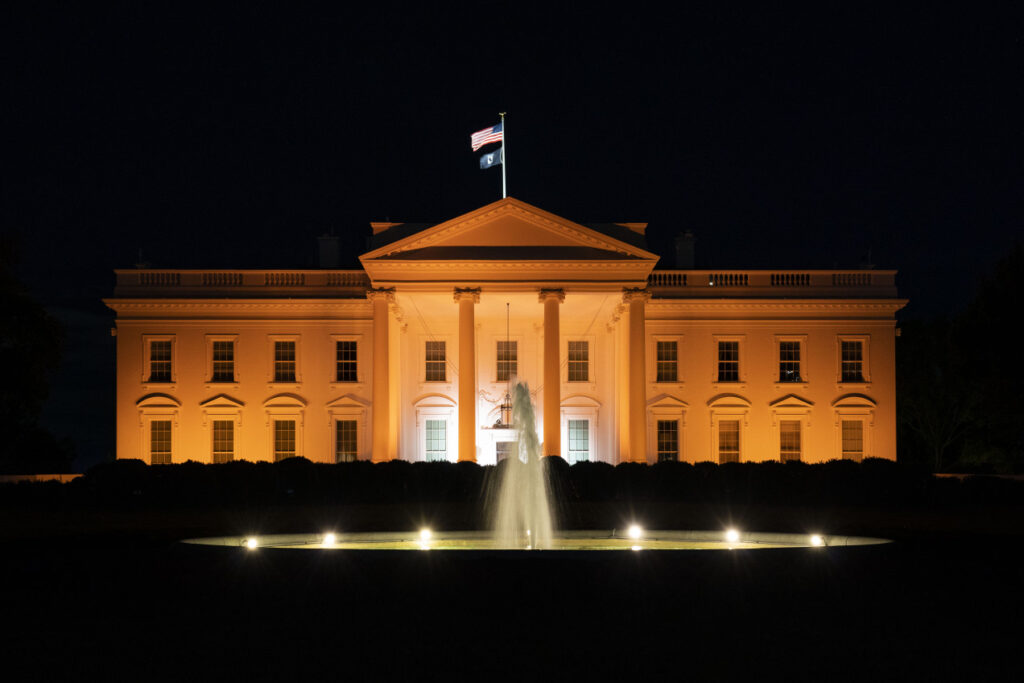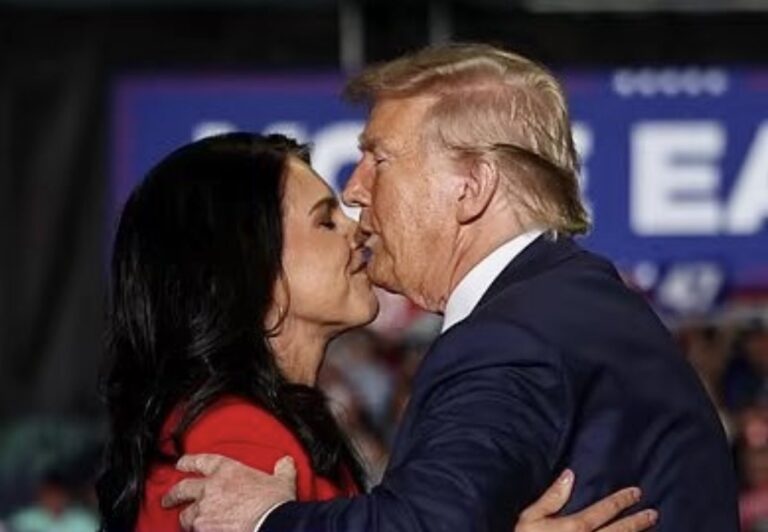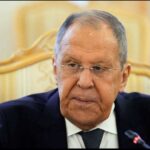The removal of a senior CIA officer by the U.S. Director of National Intelligence (DNI), alongside the revocation of classified access for 36 current and former officers, highlights a longstanding issue: the politicization of American intelligence. The timing and circumstances — involving assessments of Russian interference in the 2016 elections — raise critical questions about whether intelligence institutions are being reshaped to fit political narratives rather than objective analysis.
Why Did This Happen?
The official explanation emphasizes procedural or clearance issues, yet the context suggests political sensitivities. Russian interference in the 2016 elections remains a politically charged issue in the U.S., polarizing both Congress and public opinion. By sidelining intelligence officers tied to assessments that challenged certain political narratives, the DNI appears to be insulating the intelligence community’s public posture from controversy.
- Institutional Control: Centralizing influence under the DNI and limiting dissenting voices.
- Political Pressure: Demonstrating alignment with an administration that has often criticized intelligence conclusions on Russia.
- Messaging Strategy: Avoiding the release of findings that could revive debates on election legitimacy.
Historical Precedents of Politicization
The U.S. has a long history of intelligence manipulation or suppression when political imperatives clashed with inconvenient assessments:
- Vietnam War (1960s–70s)
Intelligence estimates downplayed the resilience of North Vietnam and the Viet Cong under pressure from political leaders seeking to justify escalation. - Reagan Era (1980s)
Analysts were pressed to exaggerate Soviet military capabilities to justify higher defense spending. - Iraq War (2003)
Perhaps the most infamous case: intelligence on weapons of mass destruction was selectively interpreted and politicized to support the case for invasion, despite internal dissent within the CIA and State Department.
Why Now?
Several dynamics explain the resurgence of politicization today:
- Heightened Partisanship: Intelligence is increasingly entangled in domestic political battles.
- Russia Factor: Moscow’s interference and ongoing operations have become a wedge issue in U.S. politics. Any assessment can be weaponized by one party against the other.
- Erosion of Trust: Public skepticism of intelligence agencies since the Iraq WMD debacle makes them vulnerable to political attacks and micromanagement.
- Institutional Turf Wars: Competition among the CIA, NSA, and DNI over who controls narratives has intensified, particularly in cyber and election-security domains.
Consequences for Russian-Related Issues
- Weakening of Objectivity: Analysts may self-censor or tailor findings to avoid political fallout, undermining the credibility of assessments on Russia’s activities.
- Strategic Blind Spots: Pressure to downplay Russian influence operations could leave policymakers unprepared for future interference.
- Exploitation by Moscow: Russia benefits when U.S. intelligence is discredited internally, using narratives of “deep state manipulation” to weaken American democratic institutions.
- Foreign Policy Paralysis: Distrust of intelligence hampers bipartisan consensus on sanctions, military aid to allies, or counter-disinformation strategies.
Broader Implications
The episode signals an erosion of the firewall between professional analysis and political decision-making. If left unchecked, this trend could replicate the failures of 2003, leading to poor policy decisions grounded in filtered or distorted intelligence. In the context of Russia, it risks undermining deterrence by signaling disunity and indecision within the U.S. security establishment.
Conclusion
The current controversy is not an isolated case but part of a recurring pattern of politicization. The stakes, however, are higher than in previous decades. Russia’s sustained hybrid warfare and disinformation efforts mean that intelligence politicization does not merely distort U.S. policy — it actively strengthens America’s adversaries. Safeguarding analytic independence within the intelligence community has become a matter of national security, not just bureaucratic integrity.
. Sharp Workforce Overhaul
Gabbard has pushed a dramatic restructuring under the banner of “ODNI 2.0”:
- A proposed 40–50% reduction in personnel, including elimination of key centers like the Foreign Malign Influence Center (FMIC), Cyber Threat Integration Center, and National Counterproliferation Center.
- These offices played central roles in election-security, disinformation tracking, and biological threats—areas where Russia remains highly active. Dismantling them weakens dedicated analytic capability.
2. Purges and Clearance Revocations
- Gabbard revoked security clearances for 37 current and former intelligence officers, many linked to the 2017 assessment of Russian election interference.
- The move was politically tinged—she accused these officials of “weaponization” under directives from President Trump.
- Former officials warn such actions erode institutional norms and chill analysts from speaking truth to power.
3. Politicized Narratives and Conspiracies
- Gabbard has publicly pushed highly partisan narratives, including claiming a “treasonous conspiracy” by Obama-era officials aimed at undermining Trump
- She also amplified discredited claims—like U.S.-funded biolabs in Ukraine—that echo Russian propaganda.
- These steps have prompted bipartisan criticism that intelligence is being reshaped to fit political talking points.
4. Institutional Turmoil and Security Failures
- Gabbard launched a Director’s Initiatives Group (DIG), akin to Musk’s “DOGE” approach, to aggressively cut costs and root out “weaponization”—but closed core analytic centers with unclear replacements
- The exodus of over 100 ODNI staff via early retirement suggests deep internal distrust and turmoil
- Compounding this, WIRED revealed that Gabbard reused weak passwords across sensitive accounts—raising red flags about her own security discipline.

More on this story: Will Trump’s Plan to Reform the CIA succeed?

5. Historical Context: Repeating Past Mistakes
Throughout U.S. history, politicization of intelligence has led to severe missteps—most notably in:
- The Iraq WMD debacle, where politicized estimates were used to justify war.
- Vietnam-era assurances undermining strategic transparency.
- Cold War-era pressure to exaggerate Soviet threats.
Gabbard’s actions risk replicating similar failures by weakening independent analytic integrity.
6. Why It Matters—Especially on Russia
- Vulnerable Countermeasures: Dismantling Russia-focused units (like FMIC) limits U.S. ability to detect and counter disinformation, election meddling, and cyber threats.
- Analyst Self-Censorship: Clearance purges and public politicization deter experts from issuing warnings that contradict political narratives.
- Credibility Erosion: Allies may reduce intelligence sharing if the U.S. community appears politically compromised.
- Strategic Blindness: Russia’s hybrid warfare becomes harder to map when intelligence is gutting the tools designed to monitor it.
Summary Table: Gabbard’s Impact on U.S. Intelligence
| Action | Effect on Intelligence |
| Massive staffing and budget cuts | Degrades analytic breadth and operational capacity |
| Revoked security clearances | Chills dissent and excludes expertise |
| Politicized messaging and claims | Undermines objectivity and public trust |
| Institutional upheaval | Disrupts coordination and leadership continuity |
| Questionable security praxis | Contradicts required norms of intelligence leadership |
Tulsi Gabbard is often perceived as unusually sympathetic to Russia, drawing from her statements, positions, and the reactions from U.S. political and intelligence communities.
1. Alignment with Russian Narratives
Ukraine & NATO
Gabbard proposed that the U.S. could avert war with Russia by guaranteeing Ukraine would not join NATO, echoing a Russian justification for aggression.
“Biden can very easily prevent a war with Russia by guaranteeing that Ukraine will not become a member of NATO.”
Biolabs in Ukraine
She also amplified controversial claims echoing Russian propaganda about U.S.-backed biological research in Ukraine:
Gabbard’s claims mirrored Russian disinformation, prompting concern among allies and intelligence officials.
2. Media Echoes & Kremlin Amplification
Gabbard’s commentary often resurfaces on Russian state media, sometimes without context—boosting perceptions of ideological alignment:
Platforms like Russia-1 have featured her Fox News interviews selectively to support Kremlin messaging.
3. Historical Associations & Controversial Visits
Meeting with Bashar al-Assad
Her 2017 clandestine trip to meet Syrian President Assad raised substantial criticism. Critics view it as aligning with authoritarian regimes, casting doubt on her judgment:
4. Ideological Foundations: Non-Interventionism
Gabbard, long a vocal opponent of regime-change wars, has criticized both parties for U.S. interventionism abroad. She described her foreign policy as anti‑war:
“I do not support bombing … regime‑change wars.”
Such rhetoric—though principled—is sometimes seen as minimizing the threat posed by Russia, feeding skepticism about her posture.
5. Political Response & National Security Concerns
Her nomination as DNI triggered alarm among security circles:
- Accusations surfaced about her reinforcing conspiracies favored by Russia.
- Critics argued her leadership may hinder U.S. intelligence credibility and collaboration.
Headlines have labeled these positions “overtly pro‑Kremlin” or dangerously aligned with similarly anti‑interventionist Kremlin narratives.
Summary: Why She’s Viewed as “Loyal to Russia”
- Echoes of Russian narratives on Ukraine and U.S.-funded labs.
- Selective coverage in Kremlin-aligned media vehicles.
- Engagements with authoritarian leaders like Assad reinforce credibility concerns.
- Non-interventionist framing downplays U.S. strategic countersteps, aligning superficially with Russian critique of NATO expansion.
- Institutional alarm over her alignment with positions that weaken U.S. posture against the Kremlin.
The main possible reasons behind Tulsi Gabbard’s perceived sympathies toward Russia, based on her political history, ideological stance, and recent actions:
1. Ideological Non-Interventionism
Gabbard has consistently opposed U.S. regime-change wars and interventions abroad. This worldview naturally overlaps with Russia’s narrative that Western military expansion is destabilizing. Her stance may not stem from loyalty to Moscow, but rather from her anti-interventionist ideology, which happens to echo Russian talking points.
2. Distrust of the U.S. Establishment
She frequently criticizes the U.S. intelligence community, mainstream media, and political elites, portraying them as corrupt or manipulative. Russia actively promotes similar skepticism of Western institutions. By positioning herself as a contrarian voice, she inadvertently creates rhetorical space that benefits Moscow’s strategic messaging.
3. Political Branding & Constituency
Gabbard appeals to a niche base of voters who are skeptical of foreign wars, sympathetic to libertarian or anti-establishment causes, and receptive to critiques of NATO. By adopting positions that challenge bipartisan consensus on Russia, she reinforces her brand as an outsider unafraid to speak against “Washington orthodoxy.”
4. Selective Media Amplification
Russian state media, including RT and Sputnik, often amplify her statements, particularly when they align with Kremlin interests. This feedback loop both magnifies her image as “independent” and makes her appear closer to Russia than she may intend. The Kremlin benefits by showcasing a U.S. politician questioning Washington’s policies.
5. Personal Foreign Policy Style
Her 2017 visit to Bashar al-Assad in Syria showed a willingness to meet with controversial leaders outside U.S. policy norms. This approach signals that she sees engagement with adversaries as legitimate. In practice, it has contributed to the perception that she is soft on authoritarian regimes aligned with Russia.
6. Strategic Calculation
By taking positions that diverge sharply from mainstream Democrats and Republicans, Gabbard carves out political space for herself. Russia’s narrative opposition to NATO and U.S. interventionism provides a convenient platform for political differentiation, even if it carries reputational risks.
7. Potential Influence of Russian Messaging
While there is no direct evidence of coordination, Gabbard’s positions mirror long-standing Russian propaganda themes:
- NATO expansion as provocative.
- The U.S. engaging in bioweapons research abroad.
- The need to negotiate spheres of influence with Russia.
These overlaps could suggest that she either consciously or unconsciously absorbs narratives from Kremlin-linked discourse.
Conclusion
Tulsi Gabbard’s perceived loyalty to Russia is less about overt allegiance and more about the intersection of her anti-interventionist ideology, anti-establishment posture, and Kremlin propaganda amplification. The convergence creates an impression—especially among U.S. security experts—that she acts as an unwitting asset to Moscow’s narrative campaigns.
There are several potential threats to U.S. security linked to Tulsi Gabbard’s positions and the way they overlap with Russian interests. They do not stem from her having any proven direct ties to Moscow, but rather from how her rhetoric and actions can weaken resilience against Russian influence operations and undermine trust in U.S. institutions.
1. Narrative Amplification Risk
By echoing Russian talking points (e.g., NATO provoked the war, Washington funds “biolabs” abroad), she lends credibility to Kremlin propaganda inside the U.S.
- Threat: This lowers public resistance to disinformation, making Americans more vulnerable to Russian influence campaigns during elections or crises.
2. Erosion of Trust in U.S. Intelligence
Her repeated attacks on the CIA, FBI, and broader intelligence community as “corrupt” or “politicized” may resonate with parts of the electorate.
- Threat: Weakens domestic support for intelligence agencies, undermining their ability to act decisively on Russian cyber or covert threats.
- Historically, when public trust in intelligence collapses (as after the 1970s Church Committee revelations), it takes years to restore operational credibility.
3. Political Weaponization by Adversaries
Russian state media already amplifies her statements. If she continues to grow in prominence (e.g., in Congress, a future administration, or media roles), Moscow could highlight her words as proof of “divisions” in America.
- Threat: Undercuts U.S. diplomatic messaging abroad, particularly in Eastern Europe and NATO, where allies may see her as a voice of U.S. policy drift.
4. Influence on Policy Debate
While she currently has limited institutional power, her ability to shape public opinion and policy debates could encourage isolationist tendencies.
- Threat: A more isolationist America aligns with Russia’s strategic interest in weakening NATO and Western unity.

5. Election Security Concerns
If Russian-linked disinformation networks promote her or similar figures, they may succeed in sowing deeper polarization within the U.S. electorate.
- Threat: Creates a favorable environment for Russian election meddling — not by changing votes directly, but by fracturing consensus and reducing confidence in democratic processes.
Tulsi Gabbard herself does not pose a direct operational threat to U.S. security, but her rhetoric and positioning indirectly serve Russian interests. The danger lies in how adversaries can exploit her visibility to:
- amplify Kremlin narratives,
- weaken trust in U.S. intelligence,
- fuel isolationism, and
- erode allied confidence in American commitments.
This makes her part of the broader vulnerability surface Russia seeks to exploit in U.S. politics.
Tulsi Gabbard’s trajectory of influence and controversies tied to Russia:
- 2015 – Meets Indian PM Modi, signaling her openness to non-Western partners.
- 2017 – Secret trip to Syria, where she meets Assad; accused of legitimizing him, which overlaps with Russian narratives.
- 2019 – Defends Russia on several issues; Hillary Clinton calls her a “Russian asset.”
- 2020 – Opposes impeachment focus on Russia, amplifying narratives favorable to Moscow.
- 2021 – Joins Fox News circuit, grows more critical of U.S. intelligence agencies.
- 2022 – Speaks at CPAC, echoing Kremlin-style talking points on NATO and Ukraine.
- 2023 – Labels U.S. policy in Ukraine a “proxy war,” gains traction in conservative media.
- 2024 – Floated as possible Trump VP pick; her ties to Russian narratives intensify scrutiny.
- 2025 – Continues defending Moscow’s positions, heightening risk of amplifying Russian disinformation inside U.S. politics.
- her stances have consistently aligned with narratives useful to Moscow—whether by accident, ideology, or strategy—raising questions about her role as a political amplifier of Russian messaging.
Risk Assessment Matrix: Tulsi Gabbard and Russian Narratives
| Category | Risk Description | Likelihood | Impact | Overall Risk |
|---|---|---|---|---|
| Policy Capture | If Gabbard gains high office (VP or Cabinet), she may shape U.S. foreign policy to weaken NATO, reduce Ukraine aid, and normalize Russia. | Medium–High | High | Severe |
| Intel Credibility | Her rhetoric could delegitimize U.S. intelligence findings on Russia, creating doubt among the public and policymakers. | High | Medium–High | High |
| Strategic Narratives | Amplification of Kremlin talking points on NATO expansion, Ukraine, and U.S. wars risks eroding U.S. global credibility. | High | High | Severe |
| Operational Security | If aligned politically, she could restrict intelligence-sharing with allies, damaging Five Eyes and NATO cooperation. | Medium | High | High |
| Domestic Division | Her framing of intelligence agencies as partisan tools could fuel polarization and reduce trust in national security institutions. | High | Medium | High |
| Russian Leverage | Moscow may exploit her positions for propaganda, citing U.S. political figures to validate its narratives. | High | Medium | High |
| Long-Term Institutional Damage | Continued politicization of intelligence could discourage recruitment, retention, and morale inside U.S. agencies. | Medium | Medium–High | Medium–High |
Key Observations
- Not a spy, but a signal amplifier
– There’s no evidence she’s a Russian agent, but her rhetoric mirrors Kremlin lines often enough to be leveraged for propaganda. - Political vehicle for foreign narratives
– Russia doesn’t need her in Moscow’s orbit directly; her prominence in U.S. politics is sufficient to project their narratives into American debates. - Danger of policy-level access
– If she enters the executive branch, intelligence could face restrictions similar to what was observed in the Trump presidency, where reports on Russia were downplayed or suppressed. - Institutional vulnerability
– The repeated politicization of intelligence (Iraq WMDs, 2016 election interference, etc.) has already eroded trust; Gabbard’s rise could deepen this trend.
✅ Conclusion:
Tulsi Gabbard represents a medium–high probability but high-impact threat to the U.S. intelligence community. The danger is less about espionage and more about political influence operations, where Russian narratives gain legitimacy through her platform. If unchecked, this could weaken NATO cohesion, U.S. intelligence credibility, and domestic resilience against disinformation.




